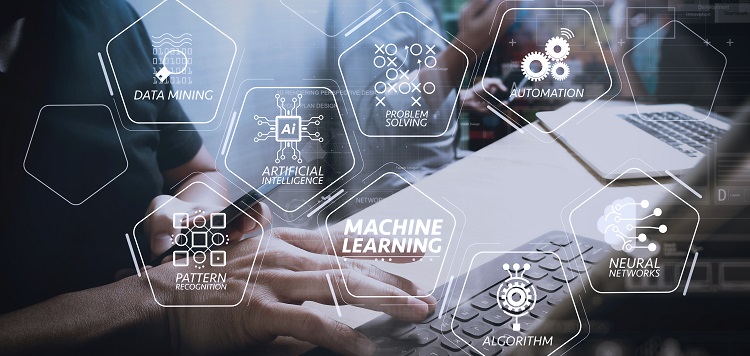Machine learning has revolutionized the way we interact with technology and how various industries function today. Machine learning algorithms have the ability to learn from data, making it possible for computers to perform tasks that were once exclusive to humans, such as recognizing speech, analyzing images, and making decisions. From streamlining operational efficiencies and optimizing decision-making to predicting future trends, machine learning has ushered in a new era of innovation and advancement.
The Use of Machine Learning in Various Industries
Numerous fields and industries depend on machine learning daily to improve efficiency, accuracy, and decision-making. The primary application of machine learning is in data analysis, and it has found its uses in industries such as finance, healthcare, manufacturing, and transportation.
In finance, machine learning algorithms are employed to detect fraudulent activities, predict loan defaults, and analyze stock market trends. Similarly, in transportation, machine learning plays a significant role in traffic optimization, predicting demand, and enabling self-driving cars.
Advancements in computer vision have been made possible by deep learning
By 2023, deep learning will have enabled computer vision to evolve even further, providing machines with the ability to carry out rapid testing and enhancing decision-making. The technology behind deep learning has equipped machines with a fascinating ability to recognize and interpret images and videos similar to humans. Computer vision is the process of enabling machines to interpret and understand images, and has several applications including driver distraction detection, object detection and computer vision techniques, 3D vision, and image segmentation.
Applications of computer vision in various industries
Computer vision has found particular applications in industries such as retail, security, and healthcare. For instance, in retail, computer vision provides valuable insights into customer behaviors and purchasing patterns, enabling retailers to make informed decisions. In the security industry, computer vision is used in surveillance systems to detect suspicious activities and identify individuals. The healthcare industry has implemented computer vision in imaging and diagnosis, making it possible to detect diseases such as tumors in medical images.
The impact of machine learning on the manufacturing sector
The manufacturing sector is reinventing its operational ecosystems with advanced machine learning applications that impact everything from supply chains and inventory controls to predictive maintenance. Predictive maintenance is a prime example of machine learning’s impact on the manufacturing sector. By analyzing data accumulated through various sensors, machine learning can predict which machines or equipment are likely to fail, enabling manufacturers to prevent incidents before they occur.
The use of machine learning in medical diagnosis
In the medical field, machine learning technologies have been used to diagnose neurological and musculoskeletal diseases. These technologies have enabled the analysis of large datasets in medical imaging to identify disease patterns and detect previously unrecognized features. Deep learning algorithms can also be used to analyze unstructured data such as medical records using images and genomics. Hence, these technologies provide healthcare professionals with a better understanding of their patients, allowing for improved diagnoses and prognoses.
Machine learning and the transformation of businesses
Machine learning is revolutionizing businesses by providing powerful analytics solutions. Machine learning algorithms can process vast amounts of data, providing insights with pinpoint accuracy and accelerating business decisions. Implementing machine learning in businesses accelerates operational efficiency, eliminates manual labor, and helps identify new business opportunities.
Inquiry-based learning and its connection to machine learning
Inquiry-based learning is an approach to real-life learning that aims to develop analytical skills and foster creativity in learners. It allows students to explore and connect with the world around them while conducting experiments in the classroom that have real-world implications. The implementation of machine learning has revolutionized inquiry-based learning by providing students with an opportunity to work collaboratively and engage in problem-solving.
Benefits of using machine learning in classrooms
Thanks to machine learning technologies, examples of machine learning can help students remember information better as they explore problems or create projects in a hands-on environment. By engaging students with machine learning exercises with real-world applications, teachers can help their students develop skills and knowledge beyond just science literacy skills. Moreover, educators can introduce machine learning to their curriculum to foster critical thinking and complex problem-solving abilities.
In conclusion, machine learning has become a fundamental technology that is transforming multiple industries, enabling better decision-making, and revolutionizing businesses. As the technology advances, it will create new possibilities for innovation and creativity. By incorporating machine learning into the education system, students can surpass their science literacy skills and develop analytical and creative thinking. The integration of machine learning into various sectors has provided the foundation for a new era of technological advancement, and it is likely to bring radical changes in the coming years.

